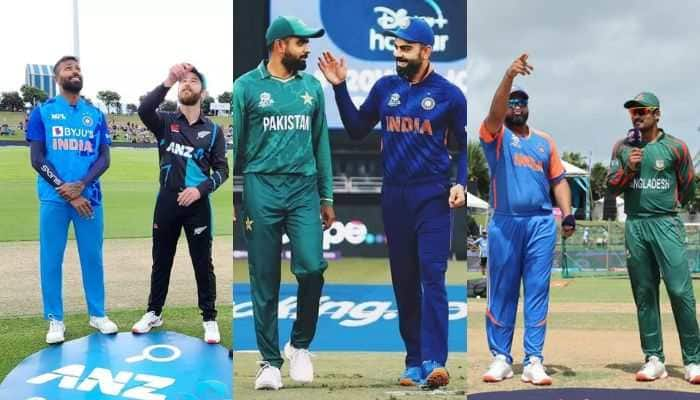Indian culture is hypocrite when it comes to women: Richa Chadha
Actress Richa Chadha feels for a country, which worships several goddesses, it is hypocritical that the nation has double standards when it comes to how the it treats women.
Trending Photos
) Pic Courtesy: Movie Still
Pic Courtesy: Movie Still Mumbai: Actress Richa Chadha feels for a country, which worships several goddesses, it is hypocritical that the nation has double standards when it comes to how the it treats women.
Richa says the huge divide between people worshipping goddesses and at the same time neglecting women is an issue, which has baffled her ever since she was a child.
"India is one of those few countries in the world where violence against women starts in the womb, before the girl is even born. We have to overcome the hypocrisy in our culture. On one hand, we celebrate Navratri, nine days of fasting for the goddess, then Durga Pooja... All kinds of goddesses in India are worshipped and praised than in any other culture," Richa said.
"But when it comes to our women, daughters, wives, mothers, sisters, we have a completely different standard. That has baffled me since I was a child," she said.
The "Masaan" star was speaking at a panel discussion on "Gender Based Violence in India". The event was held to commence the programme for the 'Justice Institute' in association with the Avon Foundation and Vital Voices.
The 29-year-old-actress said it is important to educate men on how to treat women and give confidence to girls that they can achieve what they want in life.
"Girls know they are at par... More than educating them we need to give them confidence that they can do whatever they want to in life. It is also about educating the men how to treat women.
"It stars from there. From the patriarch, the person in-charge of the power, who is conditioning everybody else to a certain way of life."
Richa, however, believes that the transition will take time, as gender-based violence is an issue, which has its roots in traditions and religion.
"It will take a lot of time because somewhere we are conditioned into thinking a certain way, it is a very large topic. It includes culture, religion, and tradition.
"It's time we question some stuff. When somebody from outside questions it, we get defencive. But we must question our own culture and use the best aspects of it."
Richa says often sexual assaults victims are stigmatised, because of which they are hesitant to come out and talk about it. "It (rape) is seen as a loss of dignity and honour, so most people would rather let their daughter just live with that rather than come out and discuss.
"The literal translation of rape in most of our movies for the longest time was 'izzat lutna', Which means to rob one's honour, and this leads to things like the victims' names being hidden."
The solution, apart from education, Richa feels lies in holding the culprits accountable for their crimes. "The victim should not be ashamed, it was not her fault. If we have to really change the attitude, we should, may be, look at people who commit this crime and hold them accountable publicly and see what that does."
Also present at the event were Christine Jaworsky, Program Director, Speak Out Against Domestic Violence, Avon Foundation for Women; Gigi Scoles, Director of Human Rights, Vital Voices among others.
Stay informed on all the latest news, real-time breaking news updates, and follow all the important headlines in india news and world News on Zee News.
Live Tv







)
)
)
)
)
)
)
)
)
)
